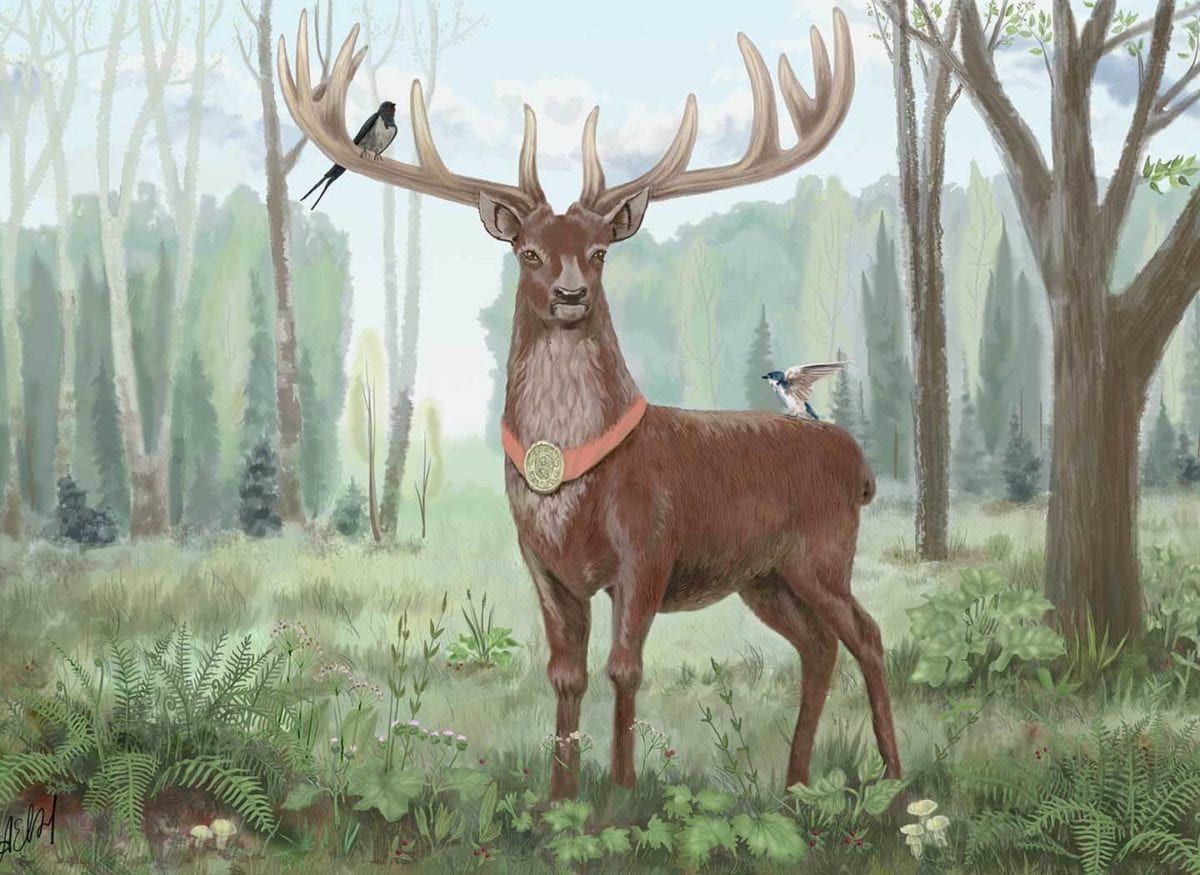To love is an art and perhaps the most important one, for love is not only the fundamental ingredient of harmony in relationships but also the basis of our very existence. It is the one thing everyone desires and offers wholeheartedly, and yet, it remains ever elusive. Or, at least it feels that way.
What is the key, if any, to true love?
When it comes to love, the age-old adage, treat others like you want to be treated, does not work. Love operates on a different principle. Let me share a beautiful Tao story by Chuang Tzu.
In ancient China, a disciple wanting to understand how to love people sought his teacher’s advice.
“Master,” he said, “it is said that all you really need to know in dealing with the world is to simply always treat others as you would want to be treated yourself. What do you think?”
“Let me tell you about how the marquis of Lu entertained the seabird,” the master said in response.
“One day a rare and beautiful seabird was blown far off course by a storm. It ended up in the royal garden of the marquis, in the capital of Lu. Delighted to sight the rare, novel and magnificent seabird, the marquis of Lu had it captured. He made the bird his special guest and it was put in a large hall reserved for the most exclusive visitors.
“The marquis had performers sing and dance for it day and night, and he presented it with fine roast meats and excellent wine, with exotic grains and other delicacies. The bird, however, was terrified and confused, and it ate and drank nothing. Three days later, it died.”
“Why do you think the bird died?”
“Because it was hungry and stressed…” the disciple stated the obvious.
“Not quite,” said the master. “The bird died because the marquis of Lu entertained the seabird the way he himself liked to be entertained, not the way a seabird likes to be entertained.”
This anecdote is worth more than a thousand books written on love. This is the art of love in a nutshell. To love the other person the way he or she likes to be loved is love. All else is merely an illusion of love, quasi-love at the most. Feed them what they like to eat.
The seabird in the story didn’t die, if you ask me. It was killed. The marquis took the life of the bird by not loving it in a befitting manner. So it is with love. It doesn’t die. Instead, it is killed. When two people act blinded either by their own desires or their individual preferences, love takes the hit. And, it can only take so much.
I’m not saying that you are not entitled to live your own life just because you are in a relationship. All I’m suggesting is that if you truly love the other person, then you make an effort to find out what matters to them and how he or she wishes to be loved.
A young mother had just put her newly born daughter to sleep. She stood near the crib with her husband, appreciating the little sleeping beauty, and recounting her own growing up.
“I had a rather tough childhood,” she said. “I always longed to learn painting but my parents forced me to take piano lessons. They never cared about what I really wanted. I hated piano.”
“We’ll make sure our daughter doesn’t go through that,” the husband said, putting his hand on hers.
“Exactly! I’ll never let my daughter take piano lessons. Instead, she will take painting classes.”
This is the primary cause of conflict in most relationships. We want to live our dreams through the other person. We want the other person to fulfill our desires. Perhaps, it’s natural that we want such things. After all, it is why people enter into relationships so they may feel fulfilled and complete.
Even though this contention is well understood, most partners continue to fail each other. You know why? In broken or failed relationships, both people continue to assert what and how much they are already doing for the other. They can write a thesis on how their partner even fails to reciprocate, much less initiate. There is no confusion there. Both are clear on what the other person is not doing.
What they often don’t do, however, is understand what their partner actually requires. And, this discovery begins by posing a simple question to the other person, “What will make you happy in our relationship?” Or, “What can I do to show you what you mean to me, that I love you and care about you?”
This will make the other person think about and synthesize their expectations from you. Plus, you’ll know exactly what the seabird needs and how it wishes to be entertained. Even though we want to love and to be loved, the truth is, each one of us wants to be loved differently, in our own way. Gestures or words that may mean nothing to you could make your partner’s heart flutter. But, you won’t know until you ask and understand how he or she aspires to be loved. You may want to read – Skills to make a relationship last.
This is the simple principle of long-lasting relationships: to love them the way they want to be loved and not how you think they should be loved.
Love is not about sculpting the other person into an image of perfection you hold in your head. There’s a better term for that — foolishness. To love, on the other hand, is making allowances for asymmetry and imperfections. It is a reasonable acceptance of human flaws and weaknesses. After all, in our imperfections lies the sublime emotion of love like the unfound diamond in a raven mine.
Pick up love, polish it a little and the priceless jewel will shine softly but brilliantly like a full moon does on a winter night. Love doesn’t just deserve that care, it needs it.
Peace.
Swami
Editorial Note
You are my only Hope,
my only Sunshine.
Take me into You.
Make me a part of
Your fabric
until I don’t know
where You end and I begin.
It’s meant to be –
this love story,
of
the Seeker and the Sought
the Verse and Song
Surrender and You,
You and You.
What is love? Is it the emotion that overflows a person’s heart, mind and very being – the emotion that poets across the millennia have yet to capture fully?
Or is true love the simple, everyday actions – getting your spouse a morning cup of coffee, pressing your parent’s legs when they are tired, kissing your child goodnight?
What is love? Is it the tears we shed when a loved one passes, the laughter that bursts forth when they succeed – the sharing of misery and the doubling of joy?
Or is true love sacrifice – willingly giving ourselves up to a relationship where only the other person’s happiness matters?
Love doesn’t make the world go ‘round. It’s what makes the ride worthwhile.
Franklin Jones
Course
Art of Meditation
Free yourself from suffering and live life to the fullest. Learn the yogic technique of meditation in 4 days (and master it over a lifetime)
1. What is love?
Love is nearness. The person we love may be physically far from us, but if we feel a certain nearness to them, we are in love.

Don’t we say that two people have grown apart? Why? It’s because the erosion of love is nothing but the loss of nearness. The nearness you feel with anyone is the only true benchmark of love.
It is why we are able to love God, ideologies, or even people we have never met. Nearness is love and love is nearness. See it any which way, and you will likely arrive at the same conclusion.
In my mind love has many shades. The nearness you experience, be it emotional, physical, or spiritual, represents the various shades of love.
Read more in I Love You – that oft-used phrase that represents our ideal expression of true love.
2. How can one express their love towards someone?

Often we work towards big goals in life but love is not made up of big things. True love is made up of tiny elements. Love is shown in small gestures of affection, care, attention, belonging, appreciation and mutual respect.
Walk with me to understand love as I see it, let’s separate the chaff from the actual seeds with the knowledge that the seeds for sowing are different from the seeds for consumption.
It may be a good moment to pause, to take a breather, to stop and take a good look at your life. Krishna too had granted the comforts of the world to Sudama for a small amount of rice.
It wasn’t just a handful of rice that compelled him though, it was but a fistful of love. Sudama’s small offering of pure love.
And, that’s all it takes, a fistful of love to cultivate your field of relationships. Those seeds of love will one day be harvested and sowed back to grow into more and more and more and then some. It all starts with a meager sprinkle.
So, are you ready? For a fistful of love?
3. How much love is too much love?
In a toxic relationship, there’s a serious lack of understanding about what the other person needs. Obsessed partners are expert controllers, not necessarily manipulators but controllers.

They can extract a certain behavior from you by exhibiting their excessive reliance on you. They are not doing so consciously or cunningly. They are only acting compulsively, often based on what has worked for them to date.
Compulsive care doesn’t help anyone. Obsessive care undermines love. Such unhealthy relationships are prisoners of obsession and attachment.
So, what happens when care destroys love? The answer lies in what true love stands for.
4. Why is sex a taboo topic, if it is intricately linked to love?
What do the enlightened ones say about sex? And what do the commoners say about it? And must we keep the topic under so many wraps? Opening up on the topic could be liberating and a very spiritual act.
True love in a romantic relationship naturally has sex as a part of it.
- My Truth – The Pleasures of Sex: Divya Manoharan gathers the courage to talk about the difficult topic — because we all have internalized the shame that surrounds the word, sex. She found herself confused when sex was described as either extremely shameful or ecstatic.
- Confessions of a Merry Monk: Sushree Diya writes about the importance of creating a parent-child relationship where children feel comfortable approaching their parents for sexual education topics. She shares about the time when she had put herself in a dangerous place because of the distressful environment at home. But that’s not the only thing she packs in.
And unfolding a different side to love,
- Learning to Experience Love: In the bustling metropolis of New York, Kunal Lunawat’s heart fills with love and gratitude for people who aren’t related to him by blood, yet loved him like he were one of their own. Love doesn’t need physical touch nor closeness. Heck! not even relatedness.
Read all these real-life stories and more in Love, Sex and Spirituality. Have you embraced your notion of sexuality yet?
5. What is unconditional love?
Does true love exist? What does it mean when we say we love someone?
The following video talks about what unconditional love is, with the help of a beautiful stuti that epitomizes true and unconditional love. In the end, God is love.

Timeline:
- 0:29: Narayana Stuti and explanation
- 6:48: Unconditional love is almost impossible
- 9:14: The story of the drunk man who asked about love
- 10:44: The first pillar of love
- 11:23: The second pillar of love
A GOOD STORY
There were four members in a household. Everybody, Somebody, Anybody and Nobody. A bill was overdue. Everybody thought Somebody would do it. Anybody could have done it but Nobody did it.
Don't leave empty-handed, consider contributing.It's a good thing to do today.









Comments & Discussion
20 COMMENTS
Please login to read members' comments and participate in the discussion.